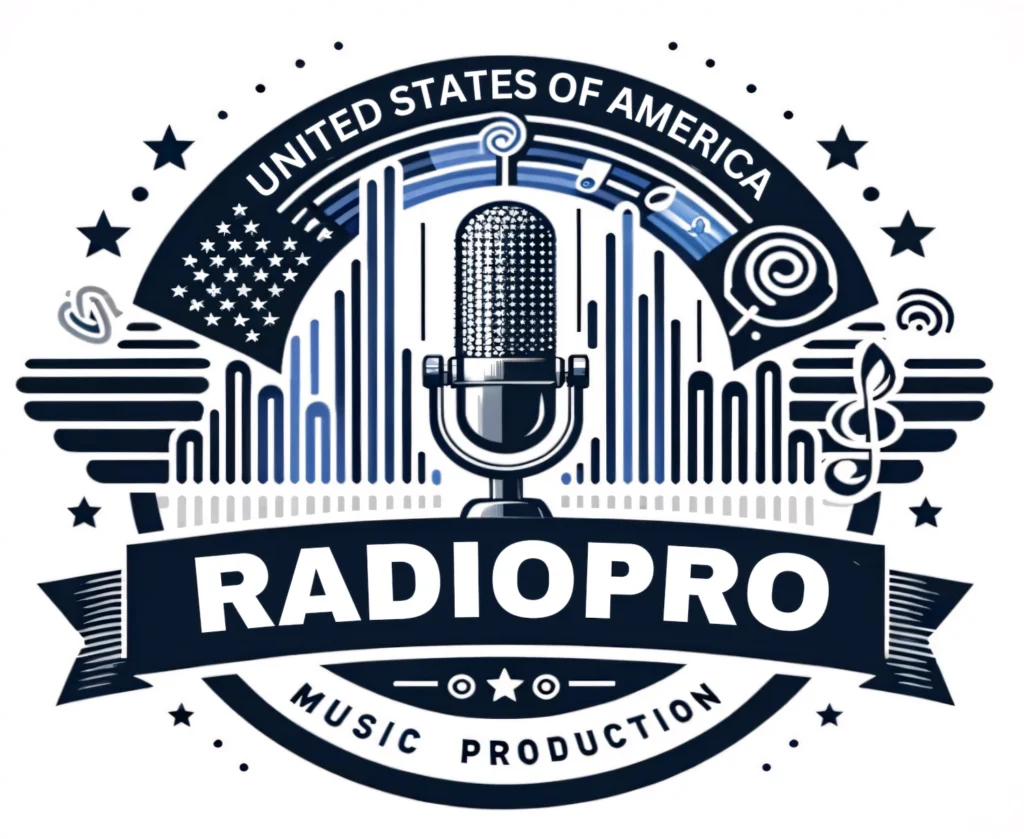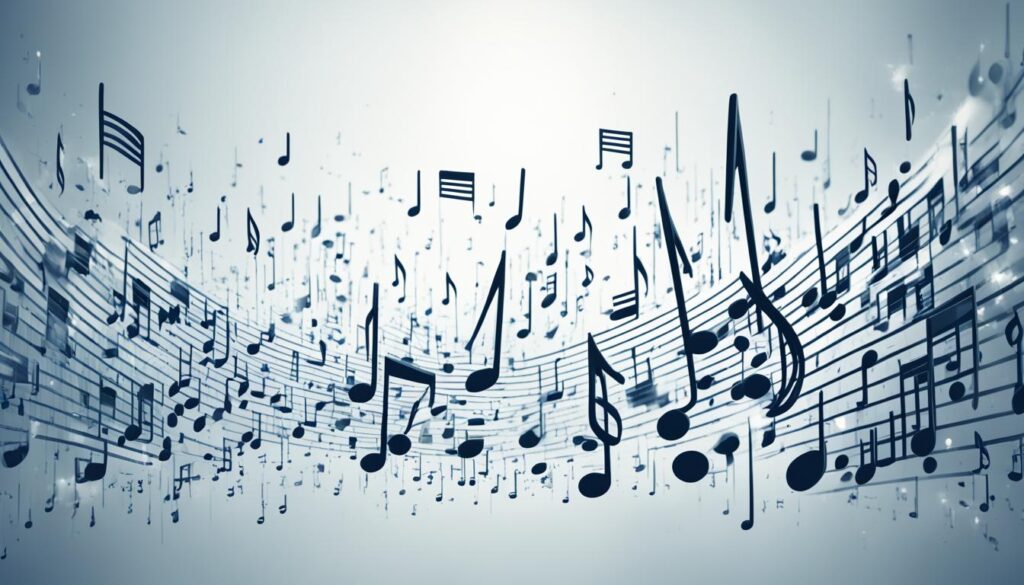Priya Gupta – Legal Advisor, RadioPro LLC
Jan 24, 2023
Artificial intelligence (AI) is revolutionizing the music industry, allowing musicians to unlock new levels of creativity and innovation. With the help of AI models, musicians can experiment with different musical templates and create unique, personalized experiences for their audiences. AI is replacing traditional methods of music production and composition, offering intuitive and adaptive solutions powered by big data. This shift in the industry has the potential to transform how music is created, performed, and experienced.
In this article, we will explore the role of AI in music composition, how it enhances creative expression, and its impact on songwriting and lyrics generation. We will also delve into the world of AI in generative art and music, and discuss the immense potential of AI-human collaboration in creative endeavors. Together, let’s uncover the exciting possibilities that music AI models offer to musicians and the industry as a whole.
Key Takeaways:
- AI is revolutionizing the music industry, enabling musicians to unlock new levels of creativity.
- Music AI models offer intuitive and adaptive solutions for music production and composition.
- AI enhances creative expression by providing innovative tools and technologies.
- Songwriting and lyrics generation are transformed through AI assistive capabilities.
- AI-powered generative art and music open up new possibilities for artists and immersive experiences.
The Role of AI in Music Composition
AI is transforming the world of music composition through its innovative tools and techniques. One of the remarkable advancements is the use of music composition algorithms, powered by machine learning and neural networks, to generate melodies, harmonies, and arrangements. This breakthrough technology allows musicians to effortlessly create entire musical compositions.
With AI music generation, musicians can explore their creative horizons by experimenting with different musical ideas and styles. These algorithms analyze vast amounts of existing musical works, discern patterns, and generate compositions in various genres and styles. This process empowers musicians to push the boundaries of their creativity and explore new musical territories.
Neural networks play a crucial role in AI music creation. They have the ability to learn and simulate the intricate patterns and structures found in music. By analyzing an extensive database of music, these networks can generate compositions that mimic specific styles or create entirely original pieces.
AI-powered algorithms enable musicians to create entire musical compositions with ease, explore new ideas, and expand their creative horizons.
The utilization of AI in music composition not only streamlines the creative process but also sparks inspiration. Musicians can collaborate with AI systems to generate ideas and refine their compositions. By incorporating AI into their creative workflow, musicians can harness the power of technology to enhance their artistic expression and create unique musical experiences.
Enhancing the Creative Process
AI-driven music composition algorithms have revolutionized how musicians approach their creative process. These algorithms analyze large datasets of existing music, identify patterns, and generate new compositions that align with the desired musical style and genre. The generated compositions can serve as a source of inspiration, helping musicians refine their ideas and explore new creative possibilities.
Unleashing Creativity with Neural Networks
Neural networks have become an essential element in AI music generation. By simulating the way the human brain processes information, neural networks can learn and reproduce intricate musical patterns. They have the ability to generate melodies, harmonies, and arrangements that capture the essence of a particular musical genre or style.
Neural networks allow musicians to embrace technology as a creative tool, enabling them to explore new musical horizons and experiment with innovative compositions. This symbiotic relationship between AI and human creativity unlocks endless possibilities in music composition.
Enhancing Creative Expression with AI
AI is revolutionizing the music industry by providing innovative solutions and cutting-edge technologies that enhance creative expression. Musicians now have access to an array of AI-powered applications and tools that allow them to explore new avenues of creativity and experiment with different musical styles.
One such tool is BandLab’s SongStarter, which harnesses the power of digital music innovation to help musicians generate AI-generated vibes and compositions effortlessly. With just a few clicks, musicians can create unique and inspiring tracks, saving time, resources, and emotional strain. By streamlining the music creation process, musicians can focus more on the artistic aspects of their work.
Moreover, AI technology is not limited to the creative process alone. It also plays a crucial role in streamlining the marketing and fan outreach process. Through music technology advancements, musicians can target niche audience segments and engage with their fans more effectively. AI-powered algorithms analyze data to identify and understand audience preferences, enabling musicians to deliver personalized experiences and build deeper connections with their fans.
AI-Driven Music Generation Tools
BandLab’s SongStarter and Aimi Studio are just a few examples of AI-driven music generation tools that allow musicians to compose original music efficiently. These tools employ algorithmic music composition techniques, leveraging AI to analyze vast amounts of existing music and generate unique compositions.
“BandLab’s SongStarter empowers musicians to unleash their creativity by enabling AI-generated composition. It serves as a powerful tool to overcome creative blocks and explore new musical territories.”
By harnessing the power of AI algorithms, musicians can break through creative barriers and discover fresh musical ideas. These innovative technologies open up a world of possibilities, enabling anyone, regardless of musical expertise, to create captivating melodies, harmonies, and arrangements.
Advancements in Algorithmic Music Composition
The field of algorithmic music composition is experiencing rapid growth due to advancements in music technology. AI-driven algorithms now have the ability to compose music that rivals the creativity and complexity of human composers. This breakthrough in algorithmic music composition allows musicians to experiment with unique sounds, genres, and styles that were previously inaccessible.
Additionally, AI algorithms can analyze and understand the patterns and structures of existing music, enabling the generation of tailored algorithmic compositions. This amalgamation of AI and music creation offers a new realm of creative possibilities where musicians can blend their own artistic vision with the power of AI-driven innovation.
The Future of Creative Expression
The integration of AI in music marks an exciting chapter for the industry, as digital music innovation continues to reshape the way musicians create and express themselves. By embracing algorithmic music composition and other AI-powered tools, musicians can tap into new dimensions of creativity and enhance their artistic output.
As technology continues to advance, the synergy between AI and human creativity will only grow stronger. The possibilities for exploring different musical styles, generating unique compositions, and connecting with audiences on a more personal level are endless. The future holds great promise for the evolution of creative expression, where AI serves as a catalyst to push the boundaries of music and unlock the full potential of human creativity.
AI in Songwriting and Lyrics Generation
Artificial intelligence (AI) is revolutionizing the process of songwriting and offering musicians innovative tools for creating lyrics and composing music. With AI-assisted lyrics generation, musicians can harness the power of chat models like GPT-3 to generate poetic and coherent lyrics based on their input. This technology provides a customizable lyrical foundation, allowing artists to explore new ideas and themes.
One notable example of AI software in songwriting is Bark, which takes the AI-generated lyrics and composes music to accompany them, producing cohesive musical structures. The collaborative process between human artists and AI involves idea generation, refining lyrics, composing melodies, and creating harmonies. This synergy between human creativity and AI assistance leads to the creation of unique and captivating songs.
AI in songwriting offers several benefits to musicians. Firstly, it increases efficiency by streamlining the lyric creation process. AI-assisted lyrics generation saves time and effort, enabling artists to focus on other aspects of their music production. Additionally, AI can serve as a valuable source of inspiration, providing fresh perspectives and novel ideas to enhance the creative process.
Examples of Successful AI-Generated Songs
The integration of AI in songwriting has resulted in the production of remarkable AI-generated songs. One notable example is the song “Daddy’s Car” by Flow Machines, an AI developed by Sony. The AI analyzed a large dataset of Beatles songs and used that knowledge to create a new composition inspired by the band’s iconic style. The resulting song blends nostalgic melodies with modern influences, showcasing the possibilities of AI in music production.
Another noteworthy example is the AI-generated song “Break Free” by Taryn Southern. Taryn collaborated with Amper Music, an AI-powered music composition platform, to create a pop song from scratch. The AI-generated melodies and harmonies formed the foundation of the song, which Taryn then refined and personalized to reflect her own artistic vision. This collaboration demonstrates how AI can assist musicians in exploring new creative territories.
| Song Title | AI Technology |
|---|---|
| Daddy’s Car | Flow Machines |
| Break Free | Amper Music |
| … | … |
Table: Examples of Successful AI-Generated Songs
Through the use of AI in songwriting and lyrics generation, musicians can enjoy increased efficiency, inspiration, and customization options in their creative process. AI offers a unique collaboration opportunity, where artists and intelligent algorithms work together to create innovative and emotionally engaging music. As technology continues to advance, AI’s role in songwriting will continue to evolve, further expanding the creative possibilities for musicians worldwide.
AI in Generative Art and Music
AI is revolutionizing the world of art and music, enabling the creation of awe-inspiring visual and auditory experiences through generative algorithms. Generative art, powered by AI, challenges conventional notions of authorship and creativity, enabling artists to explore new frontiers.
Using AI-powered art creation, algorithms autonomously produce stunning visual masterpieces, blurring the boundaries between human and machine creativity. These algorithms analyze existing artwork, discern patterns, and generate new compositions that push the limits of imagination and innovation.
Generative art, empowered by AI, allows artists to tap into unexplored realms of creativity and discover unprecedented artistic expressions. The combination of human imagination and AI’s analytical capabilities unveils a world of infinite possibilities.
Similarly, AI-driven generative music systems take music creation and composition to new heights. These systems analyze vast catalogs of musical works, identifying patterns and structures, and generate new compositions that imitate specific styles or create entirely novel genres. Artists can now delve into uncharted musical territories, exploring diverse sounds and textures that captivate audiences.
AI-powered generative music systems open doors to boundless creativity, efficiency, and customization for musicians. By leveraging AI technology, artists can achieve inspired compositions, taking their music to new dimensions and immersing listeners in captivating auditory experiences.
In the world of generative art and music, AI acts as a collaborator, harmonizing the capabilities of technology with the human creative spirit. By embracing AI-powered tools and algorithms, artists can unlock their full potential, expanding the boundaries of their artistic expressions.
Benefits of AI in Generative Art and Music:
- Unleashes new realms of creativity and innovation
- Efficiently analyzes and analyzes patterns in existing art and music
- Generates entirely unique and captivating compositions
- Offers customization options for artists
- Propels artists into uncharted artistic territories
- Creates immersive and transformative auditory experiences
| AI in Generative Art | AI in Generative Music |
|---|---|
| Challenges traditional notions of authorship and creativity | Analyzes existing musical works and discerns patterns |
| Produces visually stunning and original artwork | Generates new compositions in various styles and genres |
| Fosters collaboration between human artists and AI algorithms | Expands creative horizons and inspires unique musical ideas |
Conclusion
AI-human collaboration in creative endeavors holds immense potential for innovation and artistic expression. By embracing AI as a creative tool, artists can enhance their creative process and unlock new ideas and perspectives. The partnership between AI and human creativity fosters collaboration, inspiration, and the exploration of new artistic territories. AI complements human ingenuity and offers invaluable insights and tools that contribute to the evolution of music and art. As technology advances, the possibilities for AI’s role in creative endeavors continue to expand, promising a future where creativity knows no bounds.

